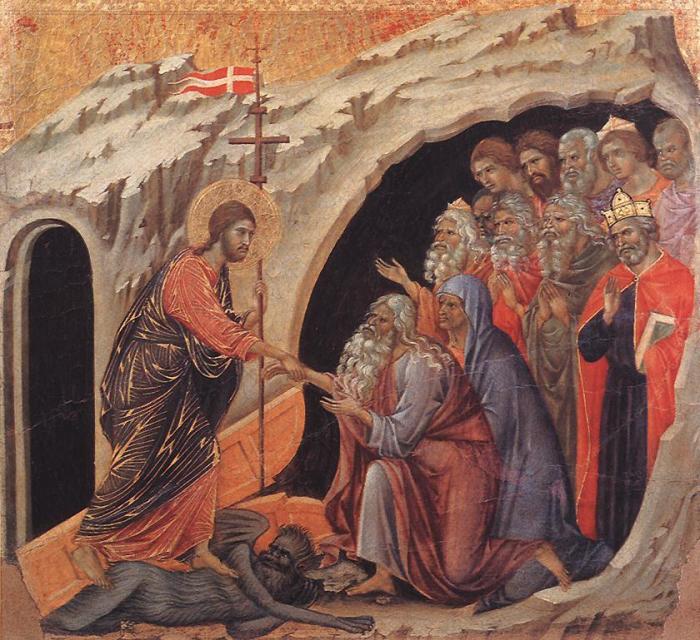DesiringGod author on why Hell will be worse for some: 'Not all sins are the same'

Not all sins are the same — and some sinners will end up in “Hell’s lowest levels” if they fail to repent, a DesiringGod author has warned.
In an op-ed, DesiringGod.com editor Scott Hubbard writes that among today’s evangelicals, it has become “virtually commonplace for us to talk as if all sins render us equally guilty before God.”
But in Scripture, Jesus “turns over our assumptions,” Hubbard says, noting that while “Jesus warns us not to make hasty, simplistic conclusions about who the ‘worse sinners' are,” He also warns us that “some sinners, if they do not repent, will face ‘the greater condemnation.’”
“He teaches that some will receive a comparatively ‘light beating’ on the last day while others will receive a ‘severe beating’ (Luke 12:47–48),” he continues. “He speaks of the final judgment being ‘more tolerable’ for some groups than for others, though both are heading to Hell. In short, He tells us that not all sins are the same, and that Hell will be worse for some.”
Hubbard contends that “greater knowledge brings greater accountability,” adding that “the more truth we have, the more damnable is our preference for lies.”
Thus, according to Scripture, the worst sinners in this world are not necessarily those who live in “rank debauchery, but those who go on sinning when they have every reason and opportunity to repent,” he explains.
“It won’t matter on the last day if we have lived near Jesus all our life,” he warns. “But if we have not repented, we will hear the same response: ‘I tell you, I do not know where you come from. Depart from me, all you workers of evil!’ (Luke 13:26–27).”
In these verses, Jesus is addressing those who, “though familiar with Christ and his Gospel, have not yet followed Jesus wholeheartedly, have not yet turned to hate their wickedness, have not yet forsaken their secret sins,” Hubbard emphasizes.
“Lukewarm, half-measure responses to Jesus will aggravate, not ease, the wrath of God on the last day,” he writes. “Better to have been lost in the fires of Sodom than to have heard, and watched, and repeated, and partaken of Christian things all your life, yet without repentance.”
Hubbard ends on a positive note, reminding readers that redemption is possible for all sinners.
“Not all sins, and not all sinners, are the same. But they all have the same remedy: the Savior who came, and lived, and died so that no one who feels the weight of their guilt need finally go to Hell,” he concludes.
In an earlier podcast, theologian John Piper agreed that Scripture reveals there will be “degrees of suffering in Hell.”
“It will be unspeakably terrible for everyone who goes there — just unspeakably terrible, without any experience of good, no sight of beauty, no pleasant sounds, no bodily pleasures, no gratified appetites, no satisfied desires, no hopes fulfilled. That’s everybody,” Piper said.
“But although Hell will be without all good for all unbelievers, it will be worse for some,” he said, explaining that certain sins are “more heinous, more destructive, more blasphemous than others.”
Piper also advised readers to be “seriously vigilant not to misuse all the pleasures of this life by treating them as God or a distraction from God;” to seek to “accumulate the fruit of righteousness;” and be “seriously vigilant over our pride.”
A 2016 survey from LifeWay Research found that 84 percent of those who hold evangelical beliefs say Hell is a place of eternal judgment, where God sends all people who do not personally trust in Jesus Christ. Only 30 percent of Americans who don’t have evangelical beliefs hold that view.
Overall, fewer than half (40 percent) of Americans say those who don’t believe in Jesus will go to Hell.
Hell is a controversial subject. In 2018, Timothy Rogers, a popular Arkansas evangelist and singer, came under fire after he declared that Hell is a "fairytale" no different than Santa Claus.
Pastor and author J.D. Greear notes that while people often feel that Hell is “some great blemish on God’s love,” Hell actually shows us the extent of God’s love in saving us.
“Why did Jesus speak about Hell more than anyone else in the Bible? Because He wanted us to see what he was going to endure on the cross on our behalf,” Greear said.
“Hell magnifies for us the love of God by showing us how far God went, and how much He went through, to save us.”




























